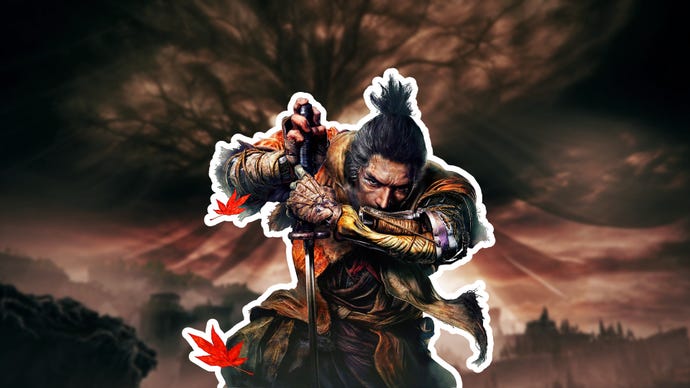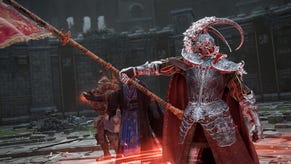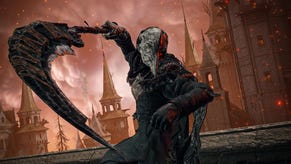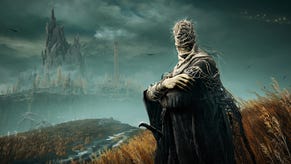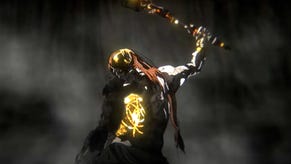Elden Ring Shadow of the Erdtree might have actually solved Souls DLC’s scaling problem, and it’s all thanks to Sekiro
Typicallly, jumping into the DLC for a FromSoftware game made me cautious due to difficulty and scaling – but Elden Ring Shadow of the Erdtree is fixing that.
FromSoftware has always had a certain design challenge that persisted across all of the DLC and expansions it created for its games. It has nothing to do with the quality of the content itself, or in the way it is accessed. The problem has always been that the studio has never quite found a good solution for where what’s new should sit, in terms of its difficulty and challenge.
Usually, DLC difficulty is on par with the main game’s end-game. If you took the time to optimise your build, you’d have the best shot at experiencing the new content at a fair level of challenge. I’ve never really been one to min-max, so I would always feel underpowered upon facing the first enemy in the DLC. That never felt good, and the climb to reclaim power felt arbitrary at best, and betrayed the time investment I’d made in my character at worst.
Considering how much of Elden Ring’s design was in response to the studio’s classic tendencies, I am simultaneously not surprised, and also elated, to learn that Shadow of the Erdtree, the game’s upcoming expansion, will itself evolve the long-standing problem of balance for DLCs.
The inspiration for this new direction, apparently, comes from somewhat of an unlikely place: Sekiro: Shadows Die Twice. Sekiro is a unique game within FromSoftware’s vast catalogue. It’s a title that created its own rules and wasn’t afraid to replace or outright eschew longstanding foundations. It’s one of the studio’s most focused and refined creations. It’s also its most exacting. I never felt like it had a major effect on follow-ups from the developer, however.
But that’s about to change, because Shadow of the Erdtree may have learned its most valuable lesson from one of the core elements that made Sekiro what it is. In an interview with Famitsu, game director and studio boss Hidetaka Miyazaki revealed how the expansion contains a new way to gain power that sits alongside the standard level up system.
Miyazaki outright confirmed that it’s inspired by Sekiro, and that it only exists within Shadow of the Erdtree. The interview was done in Japanese, and the translation we have is not the cleanest, but the idea certainly comes across as clearly as you’d expect.
This so-called ‘offensive power’ system, as Miyazaki referred to it, appears to work in a similar way to how boss Memories did in Sekiro. In that game, defeating core bosses was the only way to gain any real power. Traditional stats and levelling up didn’t exist, so the game required you to play it a certain way in order to grow in power. Upon defeating a boss, you earned a single-use consumable that boosted your health, damage and posture.
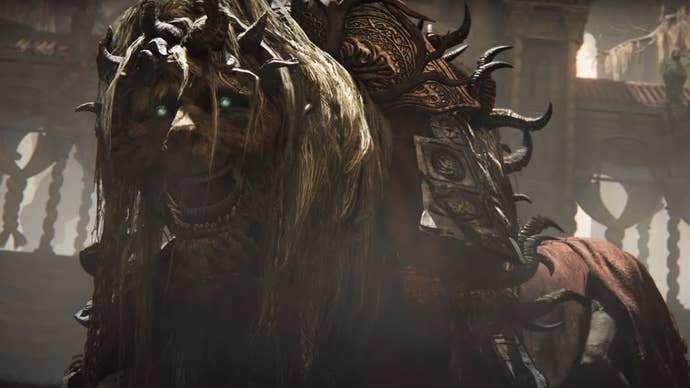
According to Miyazaki, the new system feeds right into the same ethos that informed the level of challenge of the main game, in that players will face tough bosses they may not be able to overcome, which will send them exploring other areas where difficulty is more manageable. This, in turn, allows them to gain power to make what was once unbeatable a lot less of a threat. How Sekiro’s elements will merge with that, however, remains the biggest mystery.
I suspect taking down minibosses and other non-major enemies across the world of Shadow of the Erdtree would be how you earn these permanent boosts to your power; a sort of codified, more straight-forward way of power progression, if you will. The approach also leaves room for players looking to experience a greater challenge to simply go into the DLC’s toughest fights without obtaining that power, so you can imagine all the sorts of runs we’re going to see after launch where players specifically avoid the new mechanic (or finish the DLC with an unmodified character from the main game).
This is effectively how the flaw I referred to at the start gets addressed, because Shadow of the Erdtree allows for meaningful progression, both for players who have already perfected their builds, as well as those looking for a natural climb in power that resembles the experience they’ve had with the main game.
It's a smart move, and one that demonstrates that FromSoft is not content to merely rest on its golden laurels; the developer is keen to iterate and experiment, build on the open world foundations that hold aloft this expansive DLC, and provide an experience with the potential to outshine even Bloodborne's The Old Hunters and Dark Souls' Artorias of the Abyss.
Elden Ring Shadow of the Erdtree launches on June 21, 2024 and will set you back $40.
